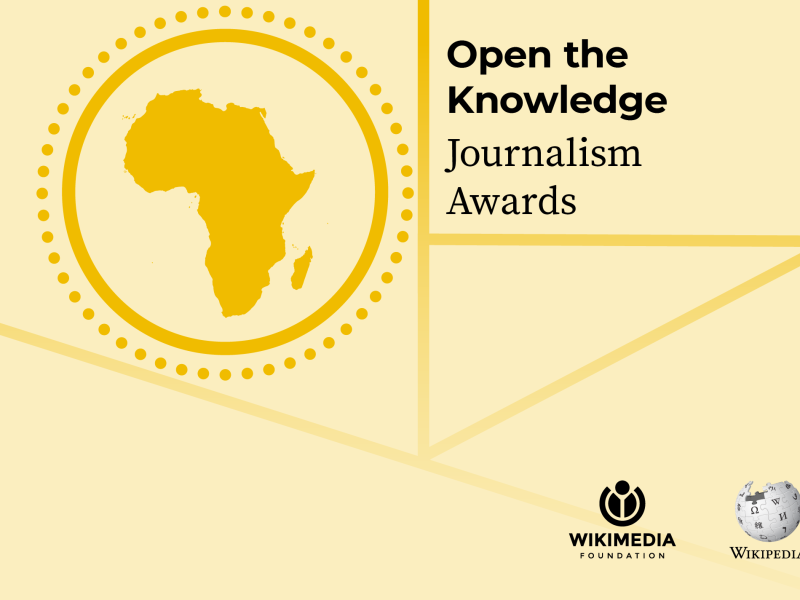The Wikimedia Community Resources team launched an Inspire campaign in March 2015 with two goals in mind:
- Experiment with a proactive, challenge-based model for finding and funding impactful, community-driven projects, and
- Increase gender diversity by inviting participation from women and allies to generate more initiatives and quality content aimed at filling Wikimedia’s gender gaps.
A total of 676 registered editors created 266 ideas on the IdeaLab between March 3rd and April 1st 2015. The campaign culminated in 16 grant-funded projects, most led by women who were new grantees for the Wikimedia Foundation.
The ultimate test of the Inspire campaign will be the success of those projects in increasing gender diversity, and over the coming year we’ll be working with the new grantees to understand the impact of these initiatives individually and as a whole. However, the Inspire team also wanted to assess the process itself, and understand the experience of campaign participants, in order to inform our grantmaking priorities; help us address pain points in the tools, documentation, and workflows we provide to community participants; and identify potential topics for future proactive funding campaigns.
Our campaign evaluation report contains results, analysis, and recommendations drawn from a survey of 145 Inspire participants, as well as page view and editing statistics. Below, we list some of the key findings and recommendations from that report. More data, statistics, and survey responses can be found in the full report.
Key findings
Here are highlights from our quantitative and qualitative results.
IdeaLab hosted a diverse group of collaborators
The Inspire campaign drew in editors from 89 countries and projects as diverse as Wikipedia, MediaWiki, WikiSource, and Wiktionary in multiple languages. Within the month of March, the monthly IdeaLab idea count was 4000% higher, and the number of participants 1800% higher, than historical monthly averages.
Gender diversity was an important consideration for the Inspire team, give the focus of the campaign. Encouragingly, women were well represented in the IdeaLab in March: 34% of survey respondents listed their gender as “female”.
Editors provided suggestions for future campaigns
Of the 93 respondents who answered the question “would you participate in another campaign?”, 88% responded yes or maybe (given the right topic). Many respondents went on to suggest intriguing topics for future Inspire campaigns:
- “I’d like to see more multimedia projects.”
- “Combating systematic bias with regards to low editing habits of Global south Wikimedians.”
- “Paid editing, adminship reform, civility”
- “intellectual property/copyright issues, human resource-type processes and infrastructure for open communities, small language communities, open education, better coverage of marginalized forms of knowledge, gender gap again!”
New tools helped us scale participation, but there is room for improvement
Many respondents said that they appreciated new technical features of the IdeaLab that made it easier to create, find, and endorse ideas. However, these gadgets did not work well for all operating systems or browsers (especially on mobile!). Furthermore, the lists of ideas and profiles were not always up to date, and important information was not always available in each participant’s first language.
Participants want more and better information, especially idea creators
Some survey respondents expressed frustration about a lack of clear instructions, and confusion about what was expected from them after they initially submitted their idea.
- “I was confused that no-one followed up with me after I submitted an idea.”
- “It was a difficult process to navigate in terms of understanding what the steps were, what exactly were the phases, when to add what additional templates.”
Process innovations sparked strong feelings
Opinions were divided on the usefulness of process innovations deployed in the IdeaLab which are different from other processes that some Wikimedians were used to. These included friendly space expectations, and the separation of endorsements from general discussion (including threads devoted to listing ‘opponents’ of an idea).
- “The opposition posts were many and nasty.”
- “I liked that discouragement and opposition was moved away to talk page. That really helped others to analyze the ideas without bias.”
- “The problem with this campaign, is that there’s not really a metric of disagreement.”
- “Facebook syndrome: You can state your enthusiasm, but not your dislike.”
- “The fact that it was not possible to include opposition on the idea pages bothered me much. So, whilst my supports were clearly visible on the pages that I supported, my opposes were only visible on the talk pages.”
We stand by these design decisions, despite the controversy they sparked. Research has repeatedly shown that women are more likely to avoid conflict-driven environments, on Wikimedia projects as well as in other personal and professional settings[1]. A culture of conflict and hostility may be a contributing factor in Wikimedia’s gender gap–especially when women are singled out as the target of hostility, as individuals or as a group. Unfortunately, we were not able to completely avoid this phenomenon during the campaign.
- “The amount of anti-woman sentiment was very distressing – ironically the degree of over-the-top anti-woman commentary was probably sufficient to justify the campaign by itself.”
- “My only real complaint was the unfortunately hostile and disproportionate comments by male participants – who I found ill-informed on the subject. As a male, I found it awkward the “expertise” some claimed to have on topics they clearly knew nothing about once you contemplated their remarks.”
Fortunately, we saw no indication that separating endorsements from other forms of feedback, including categorical opposition, hampered the feedback process. In fact, several idea creators called out constructive criticism as a positive development.
- “My core idea was challenged for being essentialist, which had the effect of having to better understand what I was trying to do.”
- “The back and forth dialogue was incredibly beneficial in shaping the course of the grant project. This is a process that many other organizations neglect to implement.”
- “The comments were positive and constructive. I felt supported by the community and I liked the idea of reducing the gender gap and increasing the participation of women in this awesome internet space.”
View the full set of findings
Recommendations
Based on these key findings, here are some action items that the Community Resources team will consider for any future campaign-style funding initiatives.
- Provide more on-wiki, human support for idea creators and their collaborators.
- Be clearer about campaign expectations, goals, and procedures–especially when it comes to providing instructions for idea creators and grant proposers.
- Continue to prioritize friendly spaces, constructive criticism, and lightweight ways to get involved.
- Fine tune tools and continue to internationalize.
- Make it easier for people to find what they’re interested in.
View the full set of recommendations
Overall, we’ve found the Inspire campaign to be a successful pilot – it increased attention to the gender gap issue, brought in diverse range of of new participants, and resulted in a group of strong projects that we are excited to see develop going forward. As we continue to evaluate, experiment and plan for the coming year, we’ll consider running campaigns on other strategic topics in the future, as a complement to our existing grantmaking programs. Thanks to all who have shared your time and feedback with us along the way!
If you have questions about this report, our findings or our methods, please ask them in the comment section below or on the report talk page.
Jonathan MorganSenior Design ResearcherWikimedia Foundation
- Collier, Benjamin, and Julia Bear. “Conflict, criticism, or confidence: an empirical examination of the gender gap in wikipedia contributions.” In Proceedings of the ACM 2012 conference on Computer Supported Cooperative Work, pp. 383-392. ACM, 2012.




